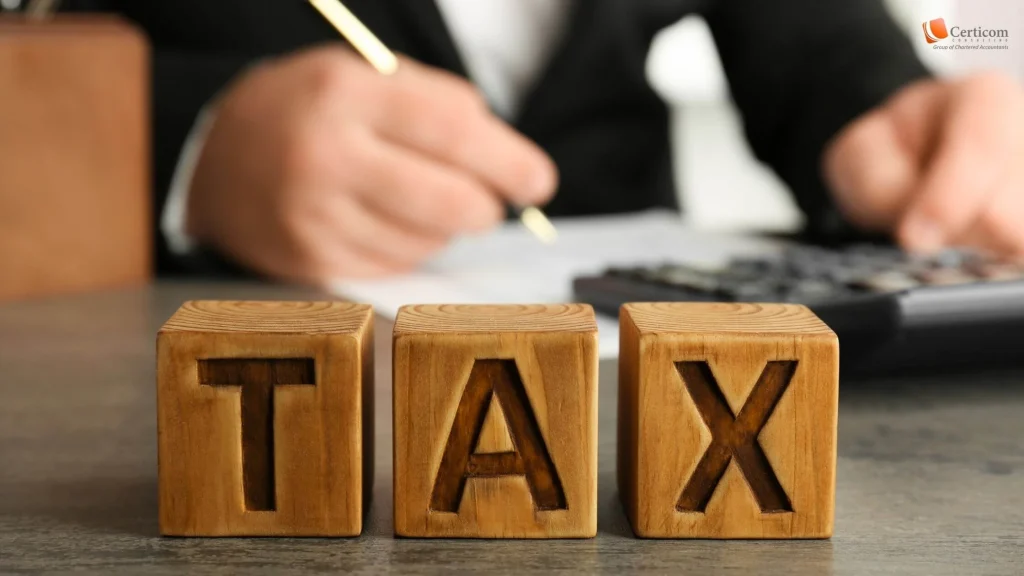Financial Deadlines You Must Meet Before March 31, 2025

As the financial year draws to a close on March 31, 2025, taxpayers have limited time to optimize their tax-saving strategies and ensure compliance with critical financial deadlines. Here’s a detailed guide to key financial tasks that must be completed before the deadline to avoid penalties and maximize tax benefits.
1. Updated Income Tax Return (ITR) Filing
The deadline to file an updated income tax return (ITR) for FY 2024-25 is March 31, 2025. This is a final opportunity for taxpayers to rectify mistakes or omissions in their previous filings. The Income Tax Department’s data indicates that thousands of taxpayers utilize this provision each year to correct discrepancies and avoid penalties.
Use an Income Tax Calculator to determine your tax liability and ensure accuracy before filing.

2. Investment in Tax-Saving Instruments
Under Section 80C of the Income Tax Act, taxpayers can reduce taxable income by investing in tax-saving schemes such as:
Employee Provident Fund (EPF): Contribute up to 12% of your basic salary to build a retirement corpus while availing tax benefits.
Public Provident Fund (PPF): A government-backed savings scheme offering secure investments with returns of approximately 8%.
Equity Linked Savings Scheme (ELSS): Provides market-linked returns with a 3-year lock-in period and tax benefits.
The cumulative deduction limit under Section 80C is ₹1.5 lakh, helping taxpayers lower their tax burden.
3. TDS Filing and Certificate Issuance
Taxpayers must issue TDS filing certificates for tax deductions made under various sections for January 2025. The key deadlines include:
TDS Certificate for Sections 194-IA, 194-IB, and 194M: Due by March 17, 2025.
Furnishing of Challan-cum-Statement under Section 194M: Due by March 30, 2025.
Timely compliance with TDS deadlines ensures smoother tax filing and avoids interest or penalties.
4. Investing in Government Schemes for Tax Benefits
The government offers multiple schemes that provide tax-saving benefits:
Senior Citizen Savings Scheme (SCSS): Higher interest rates and tax benefits for senior citizens.
Sukanya Samriddhi Yojana (SSY): A long-term savings scheme for the financial security of girl children.
National Pension System (NPS): Tax deductions under Section 80C and additional benefits under Section 80CCD(1B).
Investments in these schemes must be made before March 31, 2025, to claim tax benefits for the financial year.
5. Minimum Investment in PPF and SSY
Government savings schemes like PPF and SSY require a minimum annual investment to keep accounts active. Failure to meet the requirement may result in penalties. Ensure the minimum contributions are made before March 31, 2025.
6. Benefits of Owning an Electric Vehicle (EV)
Taxpayers can claim deductions of up to ₹1.5 lakh for interest paid on EV loans under Section 80EEB. The deduction applies to loans sanctioned between April 1, 2019, and March 31, 2023.
7. Health Insurance Tax Deductions
Health insurance premiums qualify for tax deductions under Section 80D:
₹25,000 deduction for self, spouse, and children.
₹50,000 deduction for parents (if they are senior citizens).
Total possible deduction: ₹75,000 – ₹1,00,000.
Ensure premium payments are made before March 31 to claim deductions for FY 2024-25.
8. Charitable Donations for Tax Deductions
Under Section 80G, donations to eligible charitable organizations provide tax benefits. Contributions to entities such as the Prime Minister’s Relief Fund qualify for full exemptions.
9. Pradhan Mantri Vaya Vandana Yojana (PMVVY)
Senior citizens can invest in PMVVY before March 31, 2025, to secure an annual interest rate of 7.4% with a 10-year tenure.
10. Advance Tax Payment
Senior citizens can invest in PMVVY before March 31, 2025, to secure an annual interest rate of 7.4% with a 10-year tenure.
11. FASTag KYC Update Deadline
The National Highways Authority of India (NHAI) has extended the deadline for updating FASTag KYC details to March 31, 2025. Ensure compliance to avoid disruptions in toll payments.
12. PAN-Aadhaar Linking
The government mandated PAN-Aadhaar linking before June 30, 2023. Taxpayers who missed the deadline may face a ₹1,000 penalty and deactivation of PAN from July 1, 2023.

13. Foreign Income Statement Upload
The government mandated PAN-Aadhaar linking before June 30, 2023. Taxpayers who missed the deadline may face a ₹1,000 penalty and deactivation of PAN from July 1, 2023.
13. Foreign Income Statement Upload
Taxpayers claiming Foreign Tax Credit must upload statements of foreign income and taxes paid for FY 2022-23 by March 31, 2025.
14. Updated Return Filing for AY 2022-23
The deadline to file an updated return for Assessment Year 2022-23 is March 31, 2025. This is the final opportunity for taxpayers to correct past tax filings.
By strategically leveraging tax-saving investments and adhering to financial deadlines, taxpayers can optimize their tax liability and avoid penalties before March 31, 2025. Ensure timely compliance with these crucial financial obligations to secure maximum tax benefits for FY 2024-25.
Related Post
Form 16: Key to Accurate ITR Filing
Cost Inflation Index for FY 2025-26: Impact on LTCG Tax
Book A One To One Consultation Now For FREE
How can we help? *




